Retinols are commonly known and used in the world of dermatology to treat certain skin conditions. They are a wildly popular method of anti-aging or “graceful aging” as I prefer to call it. People often reach for them when they want to reduce wrinkles or fine lines for a smoother more youthful complexion. There are a lot of opinions and considerations when it comes to using retinols. There are also some gentle natural and non toxic retinol alternatives for those who prefer them. This article will address the basics of retinols, how they work, benefits, potential side effects, gentle alternatives, as well as natural options.
* This post may include affiliate links. This means that products purchased from certain links will generate a small commission (At no extra cost to you). As always, I will only recommend brands that have passed my seal of approval and that I truly love. Thank you for supporting this little holistic space on the internet. *
How do Retinols Work? What are their Benefits?
Retinol is a type of Retinoid derived from Vitamin A. Retinols work by penetrating the outer skin layers, going deep beyond the epidermis. The epidermis is your outer skin layer. Once the molecules reach beneath the outer skin layer, they neutralize free radicals that cause aging. By doing this, the molecules help boost natural collagen and elastin production. Retinols or Retinoids also speed up the process by which the skin cells turnover or divide to create new cells. These different functions are what reduce fine lines, wrinkles and signs of aging.
Some choose not to use traditional synthetic retinols as they can come with a few side effects. Side effects are most common in those with sensitive skin types and for those who jump to a higher strength too quickly. Retinol use is meant to be a marathon not a sprint. You want to start slow and low. Eventually over time you may find you can increase the strength. However, even low doses of retinol can help one achieve a smoother complexion over time. Retinols help with the following skin conditions:
- Treats mild to moderate cases of acne
- Reduces photodamage that has occurred from overexposure to the sun
- melasma and hyperpigmentation
- Eliminates the signs of aging
- Improves the appearance of fine lines and wrinkles
- Improves skin texture
- Helps even skin tone
- Helps promote skin cell turnover
- Prevents pores from clogging
- Stimulates collagen and elastin in the skin
- Fades hyperpigmentation
- Lightens dark spots
- Reduces acne scarring
- Improves water skin barrier properties
While there are some really great effects produced by retinols, there are also a few downsides of using them. This is especially true for those with sensitive skin.
Potential Side Effects and Downsides of Synthetic Retinols
When considering retinol, it’s important to understand that it is very powerful. It can be too strong for some people so start at a lower strength is always a good idea. You should be on the look out for redness, flaking, dryness, etc. This can pass after some time but for others these side effects continue and are unavoidable. Typically these side effects last around 3 to 4 weeks.
One thing to note about using retinol is that it can cause photosensitivity. This means that your skin is more prone to burning and overexposure from UV rays. When using retinol, I always ensure that I am wearing a good SPF on my face during the days I am out in the sun. This happens because of retinols ability to speed up skin turnover, leaving a weaker top layer that can be more susceptible to environmental factors such as sunlight.
Those with sensitive skin often experience the most side effects and retinol use can lead to a weaker skin barrier overall. If you already experience redness, irritation, and sensitivity to the environment such as sunlight, a retinol will only create a deeper sensitivity. This is when one may consider using a plant based alternative to retinol as they can be much more gentle to the skin barrier. I am not against the use of retinol as I have personally experienced good results when using for acne many years ago. That being said, not all skin types will tolerate it and it is okay to take a gentler approach.
As mentioned above, the most common side effects are often redness, irritation and dryness. This typically clears up after 3-4 weeks once the skin has become accustom to a new turnover schedule and routine. If you are experiencing these side effects or more after this time period, then consider reaching for a lower strength or a plant based alternative for graceful aging.
It is important to note that pregnant and breastfeeding mothers should avoid synthetic retinols due to the high presence of Vitamin A. Typically plant based retinols from botanicals sources are considered safe but it is still important to consult with your medical professional before use.
Retinoid vs. Retinol
One important distinction to understand when looking for retinol in your skincare routine is the difference between retinoids and retinols. Retinoid is an umbrella term for all of the retinol-based products. Retinol falls under this umbrella along with other products such as tretinoin. Tretinoin is the heavy duty prescription form of synthetic retinol that can only be prescribed by a dermatologist or doctor. This option may come with the fastest results but also has the highest potential for side effects. I personally do not do well with prescription tretinoin and have seen the same results over a longer period of time with other over the counter retinols you can purchase on your own.
Retinol is a specific type of retinoid and can be purchased in a store or over the counter. It is used by skincare companies who wish to create retinol based products in their skincare lines. It is typically a lower dose of synthetic retinol and works over time to achieve the same effect the prescription would with less potential for side effects.
Here are the various retinoids and whether they fall under prescription or over the counter:
- Over-the-Counter – Retinyl Esters, Retinol, Retinaldehyde, Retinoic Acid Esters, and Adapalene.
- Prescription Strength – Retinoic Acid, Tretinoin, Isotretinoin, Trifarotene, and Tazarotene.
However, even the over the counter options can be too powerful for some skin types. In which case, you have a third option in plant based retinol products.
Synthetic Retinol vs. Plant Based Bio-Retinols: What’s the Difference
What is a Plant Based Retinol you ask? They are compounds found in nature and plants that create a similar effect to retinols when it comes to aging of the skin. They often take a bit longer to produce results but they do work just as effectively over time. They typically don’t produce the same side effects as a synthetic vitamin based retinol and are much gentler for sensitive skin types.
Plant based retinols come from plants rich in vitamin A and carotenoids. Carotenoids are rich in natural retinol and extracted from the pulp and seeds of various botanical sources. Just like a synthetic retinol, plant based sources of retinol accelerate skin renewal and turnover skin cells quicker to allow for smoother complexions.
Synthetic retinols are often enzymes derived from animal sources such as milk and eggs. They offer a more powerful and quicker result, but can be too strong as mentioned above. It may also not be an option for those who wish to use vegan skincare. Plant based retinols are sourced from plants only. I am not personally vegan, and have used many animal based skincare products such as tallow and retinol in the past with great results, but wanted to add this disclaimer for those who wish to use plant based products.
When looking for plant based retinol alternatives, there are a handful of plant ingredients that are known for their high vitamin A content and source of carotenoids. The following botanicals are the best and most potent plant based retinol options:
Bakuchiol: Bakuchiol is the most well known form of natural retinol. It has some of the strongest anti-aging and retinol compounds of all the plant based options. It helps reduce fine lines, offers a smoother complexion and reduces photoaging of the skin. Like a synthetic retinol, Bakuchiol helps speed up cell turnover of the skin. It also helps fight free radicals and boosts natural collagen production. Bakuchiol is also incredibly helpful for those trying to reduce the appearance and production of acne.
Sea Buckthorn Berry and/or Sea Buckthorn Seed: Sea Buckthorn is one of the most nutrient dense botanicals for graceful aging. It contains high levels of omega 7 for the skin and pro vitamin A. It also has high amounts of antioxidants, essential fatty acids and carotenoids. For this reason, it is considered a good choice for a plant based retinol. If looking for anti-aging effects, both are powerful yet the sea buckthorn seed may be your best bet over the berry. Sea buckthorn berry is great for photoaging, skin texture and uneven tone. While the seed has higher amounts of carotenoids and vitamin A making it slightly more effective at targeting fine lines and wrinkles.
While these two botanicals above may be the most potent options for natural and plant based alternatives to synthetic retinol. There are other plants that offer good amounts of provitamin A and carotenoids and can be a good option for those looking at skincare combatting signs of aging. Here are a few others I tend to look out for most. Although it is important to note that this is not a comprehensive list. There are certainly more plant based retinol options but these are the ones I have personally used and found very helpful for the skin:
Rosehip: Rosehip is one of my personal favorite oils for the skin. It was instrumental in healing my adult acne years ago. While using it, I noticed slight reduction of fine lines and a plumping effect to my skin. Rosehip likely falls as the third highest level of plant based retinol after bakuchiol as first contender and then sea buckthorn in second. Rosehip seeds are extremely rich in Vitamin C, provitamin A, and E which are essential for anti-aging. It is famous for its botanical composition, nutritional value, and anti-aging power. Its composition is rich in essential fatty acids (omega 6, 3, linoleic acid) which is important for rejuvenation, hyperpigmentation, and sun damage protection.
Cockspur: Cockspur is a bio-retinol derived from the leaf of the plant itself. It is a great plant based retinol alternative that offers clarifying, smoothing and youth boosting benefits. It also supports the skins microbiome. It is slightly newer to the modern skincare game and has less studies backing its effectiveness but anecdotal evidence has shown it to be a good contender when it comes to graceful aging and skin care.
Carrot Seed Oil: Carrot Seed oil is high in pro-vitamin A as well as carotene. It helps speed cell turnover of the skin and boost collagen production. It has a good amount of antioxidants and actually acts as a natural protectant from UV sun over exposure.
How to Choose the Right Retinol Strength/Percentage for your Skin
Retinols vary in strength by percentage. Prescription retinoids offer a much higher dose which works faster but can be too much for some skin types. I will discuss the potencies most found in over the counter skin care using retinol. They typically range anywhere from 0.1% to 1%. The higher the percentage, the stronger the effects. That being said, it is very important to start low and slow with a retinol. There are potential side effects of using retinol and starting with a stronger type could increase your chance of experiencing some. Here is a breakdown of the most common strengths for over the counter retinols:
- 0.25%- low strength: suitable for beginners of those with most sensitive skin
- 0.05%- mid strength: a moderate strength that balances effectiveness and tolerability
- 0.1%- high strength: the strongest over the counter retinol that provides the most noticeable results but has the potential of causing the most irritation.
The Best Natural and Non Toxic Retinol Serums for Anti-Aging
These are retinol serums that include the synthetic version of retinol but they are formulated without other harmful ingredients. I love these options if tolerated because you can gain the benefits of a retinol without applying toxic ingredients like BHA to your skin. These will be some of the more effective options listed. Some of these even offer a combination of retinol and plant based retinol.
- Maya Chia: The Straight A (Combination Retinol, Bakuchiol, Moth Bean Extract)
- Cocokind Begginer Retinol Gel 0.1% (3 types of Retinoids)
- Fitglow Beauty Vita Youth Retinoic Oil (Combination Hydroxypinacolone Retinoate, Bakuchiol, Rosehip)
- Josh Rosebrook Active Infusion Oil (Combination Hydroxypinacolone Retinoate, Rosehip, Sea Buckthorn)
Many of these products can be found conveniently HERE at The Detox Market. They have kindly offered all THV readers an exclusive discount. The Detox Market Discount Code: KARILADETOX15 for 15% off your entire order.
The Best Natural Plant Based Retinol Alternatives
Plant based retinol alternatives offers a gentler approach with the same effects. These products may take more time to show their effects but they will deliver similar results. As mentioned above, there are a handful of different plants and botanicals that help speed up cellular turnover and provide the skin with pro-vitamin A and carotenoids. It is important to note that not all products will deliver the same results. Some have a higher amount of the active ingredients present in their formulas. These products also differ in the type of plant based retinol used. I have listed the active plant based retinol beside each of these products so you have a better understanding of them. I prefer to reach for bakuchiol as the main active ingredient in a plant based retinol as I have had the most desired effects with this botanical. It is the closest option to a retinol in my opinion. I have also included any other active ingredients that support graceful aging such as squalane, ceramides, hyaluronic acid, paracress etc.) as these will only help support the product in achieving desired results.
- Herbivore Moon Fruit Bakuchiol (Bakuchiol)
- BYBI Bakuchiol Booster (Bakuchiol, Squalane)
- Alpyn Beauty Plant Genius Melt Moisturizer (Bakuchiol, Squalane, Hyaluronic Acid, Ceramides)
- Fitglow Vita Rich Bakuchiol Creme (Bakuchiol, Rosehip)
- Indie Lee Retinol Alternative Cream (Rambutan, Paracress)
- One Love Organics Botanical A Bio-Retinol Night Serum (Cockspur)
- Three Ships Skin Hero Bakuchiol + Calendula Bio-Retinol Serum (Bakuchiol, Rosehip)
- Three Ships Dream Bio-Retinol + Shorea Butter Night Cream (Picão Preto – a medicinal herb that’s native to Brazil)
Many of these products can be found conveniently HERE at The Detox Market. They have kindly offered all THV readers an exclusive discount. The Detox Market Discount Code: KARILADETOX15 for 15% off your entire order.
The Best Natural and Non Toxic Retinol Body Products
If you want to achieve the same graceful aging effects with a retinol product for other parts of the body, these are some of my favorite options. Some of these are non toxic synthetic retinols and a few have plant based retinols. I have included active ingredients beside each. These are great as body creams, especially around the neck area is this is an area of concern.
- Necessaire Body Retinol (0.1% Pure Encapsulated Retinol and 10% AHA)
- Necessaire Hand Retinol (Combination of 0.25% Pure Retinol, 5% AHA + 10 Peptides)
- True Botanicals Phyto-Retinol Anti-Aging Body Lotion (Phyto Retinol – Peptillium)
- Fitglow Beauty Vitamin C + Bakuchiol Body Serum -In- Cream (Bakuchiol)
- Cocokind Retinol Body Cream (0.05% retinol)
Many of these products can be found conveniently HERE at The Detox Market. They have kindly offered all THV readers an exclusive discount. The Detox Market Discount Code: KARILADETOX15 for 15% off your entire order.
The Best Natural and Non Toxic Retinol Eye Creams, Face Masks
Lastly, I wanted to include some specialty skincare products like eye creams and face masks that offer retinol and plant based retinol actives. The skin aroudn the eyes is the most delicate and can also be where aging is noticed most. These eye creams will help with cell turn over and increasing collagen/elasticity in the area for a smoother look.
- True Botanicals Phyto-Retinol Vitamin A Sleep Mask (Phyto-Retinol)
- ILIA Bright Start Activated Eye Cream (Plant based, Sea Fennel Extract)
- Maya Chia The Advanced Eye Response Complex (Encapsulated Retinol – with no BHT)
- Herbivore Moon Dew 1% Bakuchiol + Peptides Retinol Alternative Eye Cream (Bakuchiol)
- Fitglow Beauty Phyto-Retinol Night Eye Balm (Phyto-Retinol Vigna Aconitifolia Seed Extract)
- BYBI Eye Plump Overnight Bakuchiol Eye Cream (Bakuchiol)
Many of these products can be found conveniently HERE at The Detox Market. They have kindly offered all THV readers an exclusive discount. The Detox Market Discount Code: KARILADETOX15 for 15% off your entire order.
Of all the anti-aging products available on the market, retinols certainly sit at the top for effectiveness. They offer a true solution to wrinkles, fine lines, skin texture, and discoloration. I have had success using both synthetic and plant based alternatives, though a true retinol will always work more rapidly. If you are looking to achieve more youthful skin, I highly recommend trying to add a retinol type product to your skincare routine.
Many of the products listed above can be found conveniently HERE at The Detox Market. They have kindly offered all THV readers an exclusive discount. The Detox Market Discount Code: KARILADETOX15 for 15% off your entire order.
** PIN the image below to save this post for later **
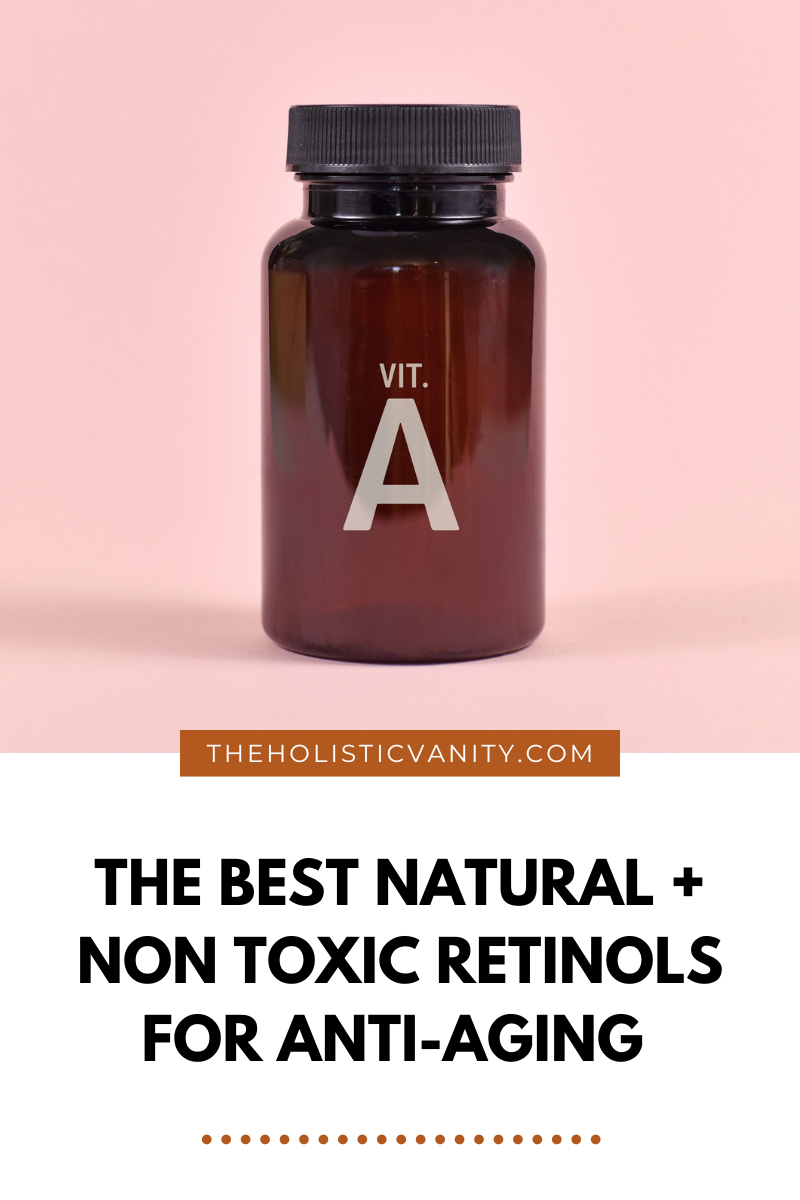

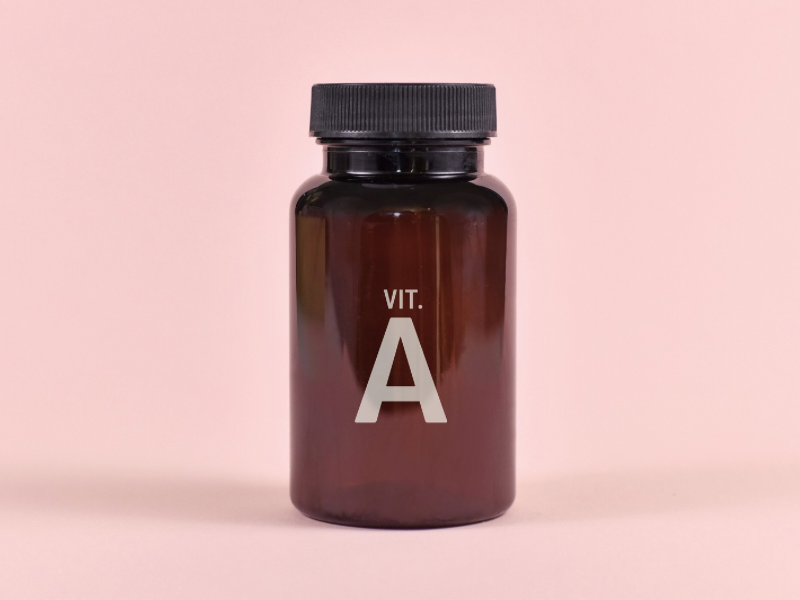
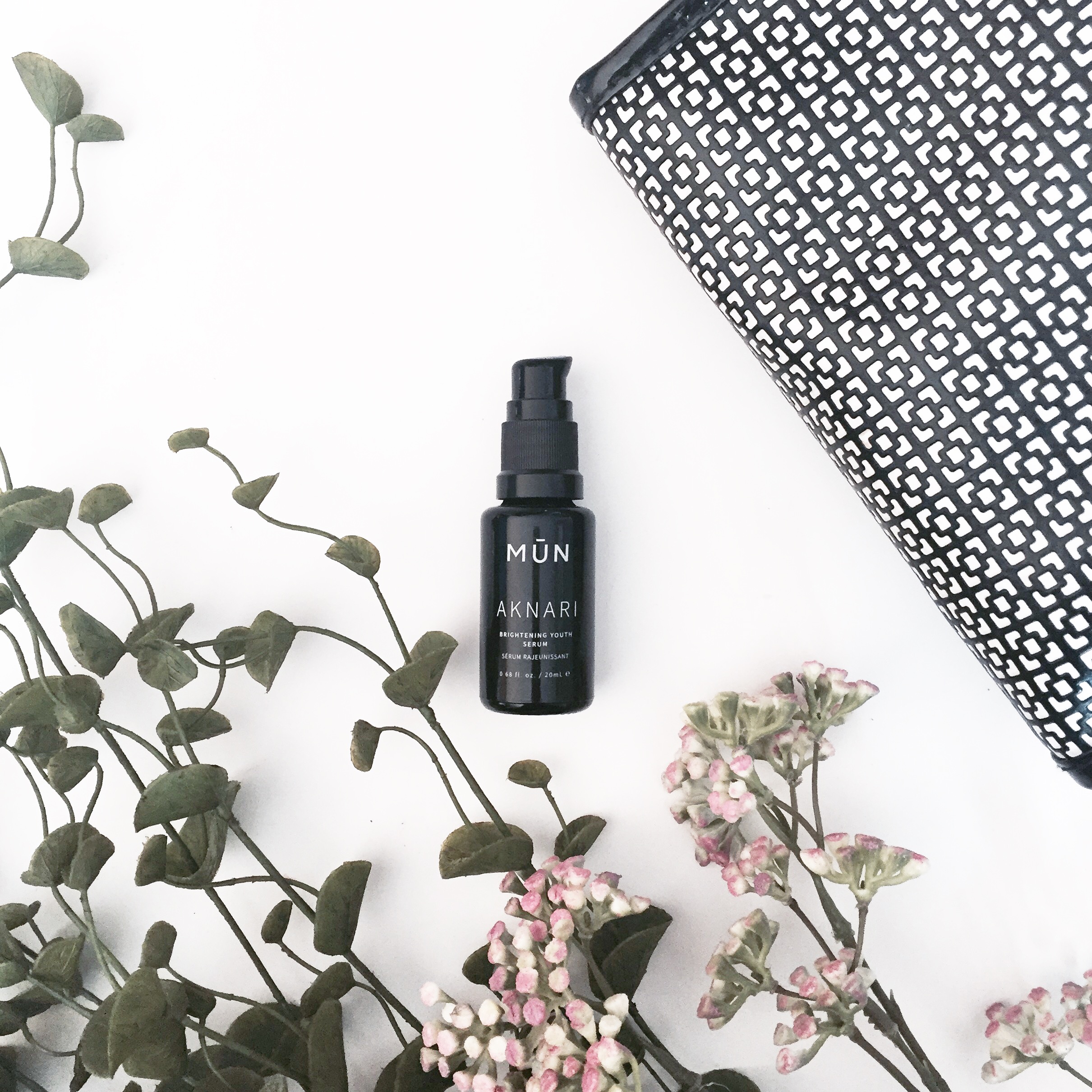
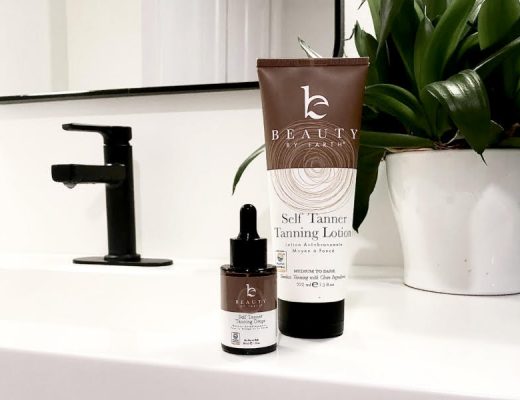
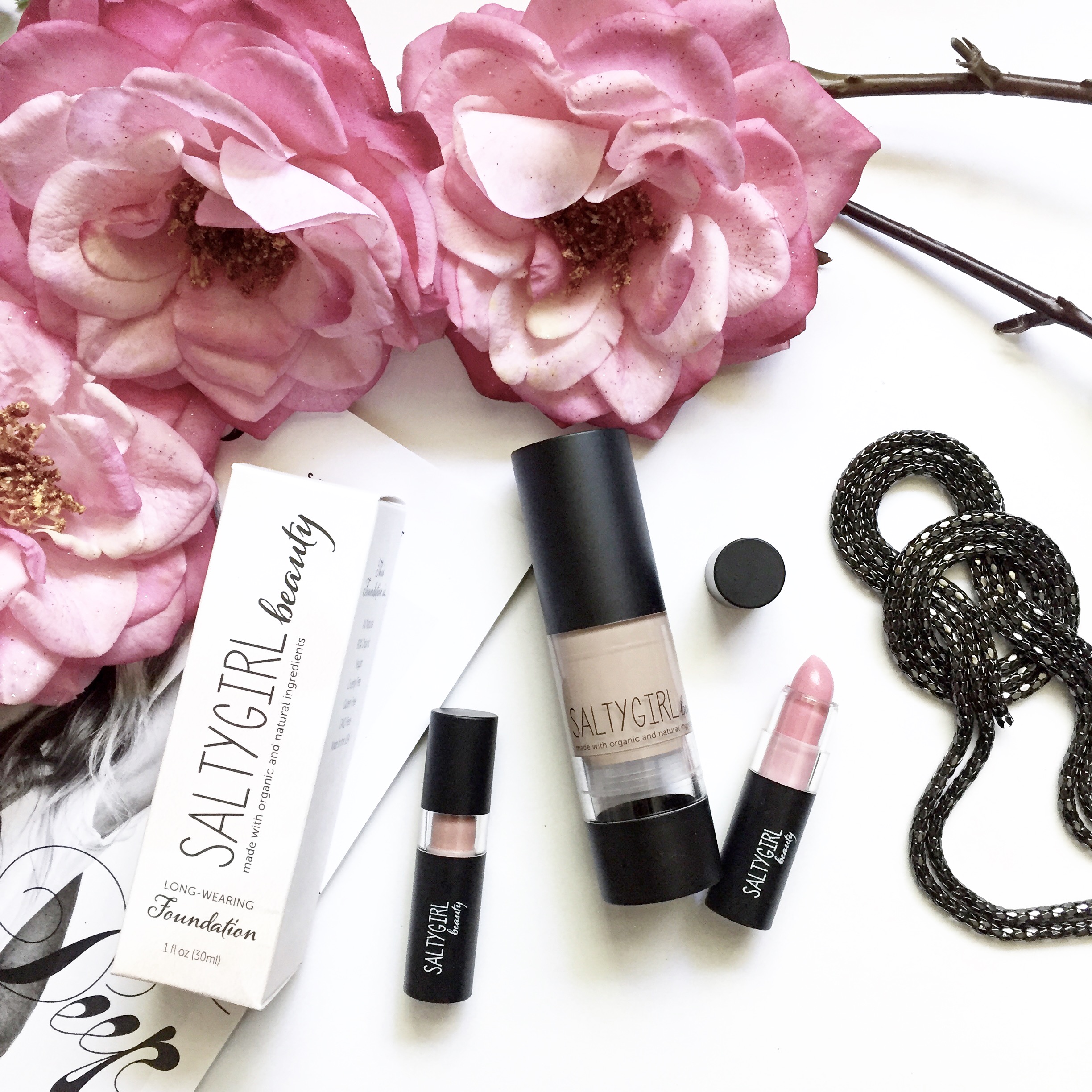
No Comments